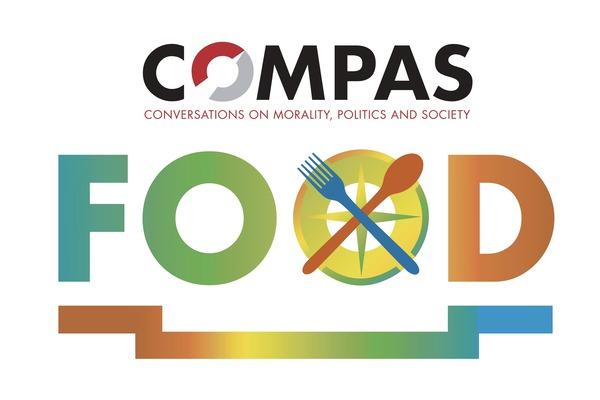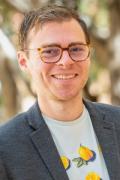
Event Description
This COMPAS Panel, “Food as Health,” explores the many social and political dimensions of identifying what healthy food actually means, and how those meanings are influenced by pre-existing biases, social media, and corporate interests. On this panel comprised of media scholars and nutrition scientists alike, we will explore the ways in which health as a construct is communicated, constructed for and by different groups of people, and the role of scientists and experts in creating nutrition guidance.
This event is part of the Center for Ethics and Human Values' 2025-26 COMPAS Program on the theme of Food.
Panelists
Travis Weisse (New Mexico State University, Sociology and Public Health)

Dr. Travis Weisse is a Visiting Assistant Professor in Sociology and in Public Health at New Mexico State University. His research explores the social and cultural history of dieting, longevity, wellness, and alternative medicine and the social construction of scientific expertise. His first book, Health Freaks: America’s Diet Champions and the Specter of Chronic Illness (published with UNC Press in Fall 2024), provides a critical cultural history of American fad diets, their colorful creators, and devoted followers. His next big project will examine the culture of wellness in and around Silicon Valley, tracing its influence on the architects and architecture of the web and the ensuing propagation of heterodox health beliefs online.
Emily Contois (University of Tulsa, Media Studies)

Dr. Emily Contois’s research explores the connections between food, the body, health, and identities in contemporary U.S. media and popular culture. She is an Associate Professor of Media Studies at The University of Tulsa, author of Diners, Dudes and Diets: How Gender and Power Collide in Food Media and Culture (UNC Press, 2020), and co-editor of Food Instagram: Identity, Influence, and Negotiation (University of Illinois Press, 2022). Her current book project explores how ideas about elite athleticism have infiltrated everyday American life.
Chris Taylor (Ohio State, Health and Rehabilitation Services)

Dr. Chris Taylor has spent 16 years exploring, “how do lifestyle factors impact obesity and chronic diseases?” Specifically, what do we do, what do we eat, and how does that impact our health status? He also studies personal cultural factors that impact disease. His two major focus areas include food patterning and the influence of personal factors on lifestyle behavior choice. Food pattern is not just about what nutrients we eat, but our food selection patterns. His second area is factors that influence behavior change. Dr. Taylor explores cultural influences (ex: African Americans, Native Americans) as motivators of barriers to lifestyle behavior.
Accommodations
To ask questions about accessibility or request accommodations, please contact CEHV Associate Director Aaron Yarmel (yarmel.2@osu.edu). At least two weeks' advance notice will help us to provide access.
